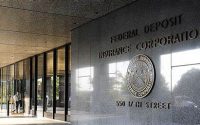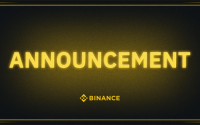Hong Kong Regulators To Aid Crypto Firms With Banking
Hong Kong’s regulatory authorities are planning to facilitate a meeting between crypto firms and bankers in their efforts to further the region’s goal of becoming a digital asset hub. The meeting, scheduled for April 28, is expected to bring together crypto firms and bank representatives to discuss practical experiences and perspectives in opening and maintaining bank accounts. The initiative intends to facilitate “direct dialog” between the parties to ease financing for the crypto sector.
Bloomberg: Hong Kong regulators are convening a meeting between crypto firms and bankers “to facilitate direct dialog” and “share practical experiences and perspectives in opening and maintaining bank accounts”. https://t.co/BHBLwBbTuZ https://t.co/6IWvbVN29B
— Wu Blockchain (@WuBlockchain) March 28, 2023
Facilitating Financing for Crypto Sector
The meeting will be held by the Hong Kong Monetary Authority (HKMA) and the Securities and Futures Commission, according to a Bloomberg report. China is reportedly backing Hong Kong’s crypto hub vision, with officials from China’s Liaison Office attending Hong Kong’s crypto gatherings as “frequent guests.” Officials have been checking on developments, asking for reports, and making follow-up calls as well, the report added.
The recent collapse of several U.S. crypto-friendly banks has made it difficult for some firms to sign up for banking-related services. However, the “growing interest among Chinese state-owned lenders in the sector” is a positive development. This is unconventional, given China’s call for a crypto crackdown on trading in 2021. At present, most crypto-related activities remain prohibited in China.
Leading Web3 Hub in Asia
Hong Kong’s Secretary for Financial Services and the Treasury, Christopher Hui, recently reiterated that Hong Kong is “well-positioned” to be a “leading hub” for Web3 in Asia and beyond. He added that the region continues to give “great importance” to virtual assets and Web3. As of the end of last month, Invest Hong Kong received expressions of interest from over 80 virtual asset-related mainland and foreign companies in establishing their presence in Hong Kong.
Spokespeople for the HKMA and Securities and Futures Commission did not provide additional details about the upcoming meeting. However, they are said to be “maintaining dialog with stakeholders.”



